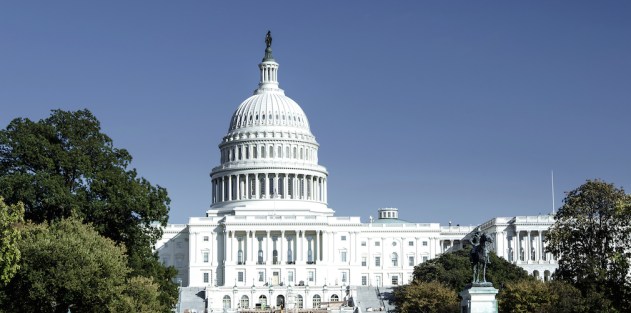A group of 18 U.S. Senators and the Mortgage Bankers Association both sent letters to the U.S. Department of Housing and Urban Development on Thursday, stating that the time has come for the Federal Housing Administration to lower its mortgage insurance premiums.
In two separate letters both addressed to HUD Secretary Juliàn Castro, the group of senators and the MBA both cited the improved financial health of the Mutual Mortgage Insurance Fund as the main reason why the FHA should reexamine its mortgage insurance fees immediately.
In the FHA’s actuarial report on the MMIF, the agency declared that there had been a $21 billion improvement since late 2012, when the agency implemented a series of financing changes.
Senators Barbar Boxer (D-CA), Robert Menendez (D-NJ), Charles E. Schumer (D-NY), Jeff Merkley (D-OR), Elizabeth Warren (D-MA), Barbara Mikulski (D-MD), Dianne Feinstein (D-CA), Patty Murray (D-WA), Richard Durbin (D-IL), Ben Cardin (D-MD), Bernie Sanders (I-VT), Jeanne Shaheen (D-NH), Kirsten Gillibrand (D-NY), Richard Blumenthal (D-CT), Chris Murphy (D-CT), Mazie Hirono (D-HI), Edward Markey (D-MA) and Cory Booker (D-NJ) asked Castro to ensure that the fees on FHA loans are “priced appropriately” to both cover expected losses and serve the agency’s stated mission of helping Americans achieve homeownership.
“With the improved outlook of the MMIF, we believe now is an appropriate time for the FHA to reexamine its premium levels to determine whether they can be reasonably and safely lowered,” the Senators wrote in the letter.
“While preserving the solid footing of the reserve fund is essential, reducing fees does not necessarily conflict with this goal,” the Senators continued. “As any business knows, just as a price that is set too high will lead to less profit, not more, lowering the premium on qualified borrowers may actually produce greater revenue and fully restore the capital ratio more quickly.”
The MMI Fund, which handles single-family programs, gained almost $6 billion in value in the past 12 months, printing now at $4.8 billion. Last year it fell short by more than $1.3 billion.
But the Senators said that because the MMIF has improved to a “positive” economic value, now is the time to examine FHA’s mortgage insurance premiums.
“The improved financial health of the MMIF has been achieved in part by raising the premiums borrowers pay for the FHA guaranty,” the Senators said. “While the increase in fees may have helped to cover losses incurred as a result of the financial crisis, it also came at a cost to new borrowers and to the FHA’s mission to expand affordable homeownership opportunities.”
The letter states that the FHA has raised its annual premium 145% since 2010, which means that a borrower with a $200,000 loan must now be able to pay $1,600 more per year in fees.
According to the Senators’ letter, the FHA now has more than enough money in the MMIF to cover all expected insurance claims over the next 30 years.
“Maximizing profit, however, should not be the only driver in determining the appropriate fee level on FHA loans,” the Senators said. “While premiums must be sufficient to cover expected losses and achieve a 2% excess reserve, the FHA guarantee should also be priced appropriately to serve the agency’s mission and provide a path to homeownership for the many creditworthy families still unable to obtain affordable financing through the private market.”
MBA Chairman Bill Cosgrove also directed a letter to Castro, saying that the FHA’s insurance premiums have directly impacted the ability of first time homebuyers to attain an FHA mortgage, reducing support for this segment of the market.
“We recognize the need for FHA to be on a sound financial footing so that it can support its mission of providing financing to first-time homebuyers and other underserved borrowers,” Cosgrove said in his letter.
“At this time, however, MBA thinks mortgage insurance premiums are counterproductively high and recommends that they be reduced to better serve borrowers and meet FHA’s stated policy objectives.”
In his letter, Cosgrove said that there is long lag time before pricing and underwriting changes show up in the performance of the fund. “For this reason, it is important to anticipate the impact of current pricing and underwriting standards on the future performance of the MMIF,” Cosgrove said. “We think it is important for HUD to take steps now to restructure and reduce FHA’s premiums in ways that also support long-term actuarial soundness.”
Earlier in the year, the National Association of Realtors also sent a letter to HUD requesting a decrease in the MI fees.“I am writing on behalf of the one million members of the NAR with concerns about the FHA’s high annual mortgage insurance premiums and mortgage insurance that is required for the life of the loan,” NAR President Steve Brown said at the time. “Home purchases are becoming increasingly out of reach for many qualified borrowers who rely on FHA financing.”
But those pleas fell of deaf ears. Shortly after NAR sent its letter, then FHA Commissioner Carol Galante said that the FHA was not planning to reduce its rates. But she acknowledged that the increases may have reached a “tipping point” that could drive buyers away.
“We’re reaching a tipping point where we believe that further increases would reduce access to credit,” Galante said in April. “However, now is not the time to roll those premiums back. Right now we are priced appropriately and are reaching out to creditworthy individuals.”
Industry analysts said that despite the increased health of the MMIF, changes in the FHA mortgage insurance premiums were unlikely in 2015, but perhaps pressure from the Senators and the MBA will be enough to gain some traction with HUD and the FHA.






